MercoPress. South Atlantic News Agency
Tag: Alberto Fernandez
-
Saturday, August 10th 2019 - 09:59 UTC
On Sunday 33.8 million Argentines will decide if they still believe in populism
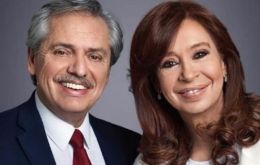
Argentines are facing what is probably the tightest presidential race since the return of the country’s democracy in 1983 with conservative President Mauricio Macri facing an opposition ticket including ex-President Cristina Fernández, and the primary elections Sunday are expected to provide a hint of who might win October’s vote.
-
Saturday, August 10th 2019 - 06:29 UTC
The Economist on Mauricio Macri's reelection chances in Argentina
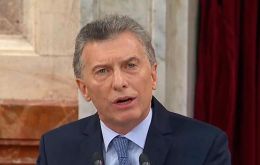
Ahead of Sunday's primaries' mandatory vote, The Economist published the following on Argentine president Macri's chances of reelection, in what seems a very tight competition with Kirchnerism.
-
Friday, August 9th 2019 - 10:59 UTC
Argentina's Sunday primaries, a first test for President Macri's reelection aspiration
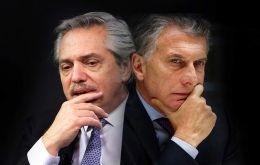
Argentina’s election primary on Sunday will determine President Mauricio Macri’s chances of winning a second term in October, with the country’s embattled peso currency expected to take a fresh beating next week if the business-friendly does not accomplish as expected.
-
Tuesday, August 6th 2019 - 09:57 UTC
US dollar up in Argentina on fears of Sunday's primaries and the global trade dispute
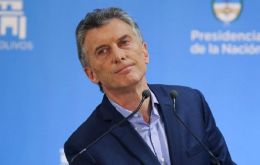
Argentina’s peso fell 1.8% on Monday to 45.49 per U.S. dollar due to uncertainty over the country’s presidential election and the fallout from U.S.-China trade tensions, traders said.
-
Monday, August 5th 2019 - 09:59 UTC
Argentines vote next Sunday an anticipation of October's presidential election
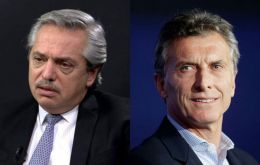
Public opinion polls in Argentina show a very close, polarized race between President Mauricio Macri and opposition candidate Alberto Fernandez before next Sunday's PASO primaries which are Open, Simultaneous and Mandatory, and most important a clear anticipation of what could happen in October's presidential election.
-
Tuesday, July 30th 2019 - 09:57 UTC
Argentina's opposition presidential ticket tries to amend differences on Venezuela and the food situation
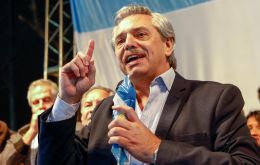
Argentina's opposition presidential candidate Alberto Fernández took distance from her mentor and vice president companion, Cristina Fernandez, saying that the food situation in Venezuela is under no means comparable to Argentina.
-
Tuesday, July 9th 2019 - 09:55 UTC
President Macri's reelection chances improving according to leading pollster

President Mauricio Macri’s chances of winning Argentina’s election this year are improving as public sentiment climbs and the economy begins to find its footing after a currency crisis, according to Alejandro Catterberg, director of Poliarquia, one of the nation’s top pollsters.
-
Monday, July 8th 2019 - 10:59 UTC
Argentine presidential campaign takes off with ads on local television

Argentine President Mauricio Macri and his rivals in the October election launched their campaign ads on local TV on Sunday, targeting undecided voters who will be key to choosing whether his policies remain in place another four years.
-
Friday, June 28th 2019 - 09:50 UTC
IMF's financial deal with Argentina “harmful” and will be “reworked”, anticipates main opposition candidate
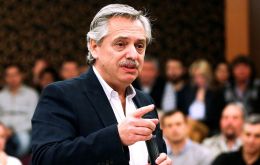
Alberto Fernandez, the main challenger to incumbent President Mauricio Macri in October elections, said on Thursday that if elected he would seek to “rework” Argentina’s huge financing deal with the International Monetary Fund, calling it “harmful.”
-
Tuesday, June 25th 2019 - 09:51 UTC
The Economist: “In Argentina, the IMF has been neither toxic nor triumphant”

“What good is it to throw a man ten feet of rope if he is drowning in 20 feet of water?” asked Kenneth Rogoff, former chief economist of the IMF, to The Economist 15 years ago. His question still bothers the institution he used to advise.
